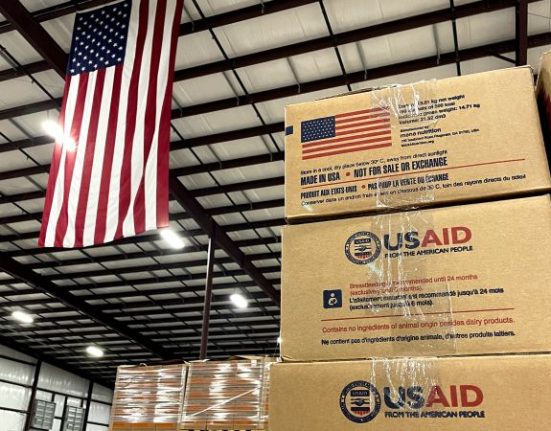Sohail R K Hussain, Managing Director, Bank Asia
Bank Asia also expresses its full solidarity with this year’s theme: #BeatPlasticPollution. On this special day, let us take an oath to eliminate plastic use and focus on practical solutions to combat plastic pollution—to save Mother Nature, and in doing so, protect ourselves and future generations.
The Daily Star (TDS): What role do you see banks playing in promoting environmental sustainability in Bangladesh?
Sohail R K Hussain (SRKH): Bangladesh Bank is well aware of the country’s environmental degradation and has, from time to time, issued directives to all scheduled banks, as well as introduced various refinance schemes to support environment-friendly industries. To promote environmental sustainability in the country, the following issues may be taken into consideration:
Implementation of Green Banking Guidelines
Bangladesh Bank (BB), the central bank, introduced Green Banking Guidelines in 2011, and subsequently launched the Sustainable Finance Policy in December 2020 (amended in October 2023). These guidelines require banks to formulate Green Banking policies, establish Green Banking units or help desks, allocate budgets for green finance, monitor environmental and social risks in lending practices.
Financing Green Projects
Banks in Bangladesh are providing finance for environment-friendly projects such as renewable energy (solar panels, biogas), energy-efficient industries, waste management and recycling plants, organic and climate-resilient agriculture.
Increased Use of Green Refinancing Schemes
Bangladesh Bank has introduced refinancing schemes for banks and financial institutions to encourage investment in green technologies and industries.
These offer concessional loans for solar home systems, biogas plants, solar irrigation pumps, green-featured buildings and various green projects.
Environmental Risk Assessment
Banks are now required to integrate Environmental and Social Risk Management (ESRM) into their credit risk analysis.
Loans to industries must meet specified environmental compliance standards, thereby discouraging pollution, climate change, and deforestation.
Promoting Sustainable Corporate Practices
Through corporate social responsibility (CSR) initiatives, banks promote awareness of climate change and support local environmental projects.
Banks frequently fund tree plantation drives, awareness campaigns, and disaster relief efforts in climate-affected regions.
Fintech can play a vital role in sustainable financing by connecting investors with green projects.
Green Bonds and Sustainable Finance
Although still emerging, green bonds and sustainability-linked financial products are gaining interest in Bangladesh’s banking sector.
These instruments can help mobilise funds for climate-resilient infrastructure and low-carbon growth.
TDS: Can you highlight any specific green finance initiatives, sustainable investment strategies, or eco-friendly banking practices your institution has adopted recently?
SRKH: Bank Asia recognises its responsibility to protect the environment and the wellbeing of the people of the country. Since its inception, Bank Asia has been committed to ensuring a safe, clean, and green environment. Our principle always avoids financing environmentally hazardous businesses. Some of our notable green initiatives include the Solar Energy project (e.g. Spectra Solar Park – Tk 2,525.00 million); Green and Sustainable Agriculture in various rural areas (current outstanding Tk 1,337.61 million); Effluent Treatment Plants (ETPs) in garment industries (total outstanding around Tk 834.26 million); Green Building Initiatives (e.g. Shayham Knit Composite – Tk 220.00 million); and Hybrid Hoffman Kilns in brickfields (e.g. Eta & Tiles – Tk 350.00 million) as part of our commitment to a green economy.
Additionally, under our social business programme, we have signed an agreement with the Rural Development Academy (RDA) for the installation of two solar irrigation pumping systems in the drought-prone Barind area. The project, titled “Two-storied Agriculture with Solar Power Irrigation System and Its Multipurpose Use”, features an 11.6 kW solar-powered irrigation unit capable of discharging 50,000 litres of water per hour. It supports irrigation for up to 20 acres of agricultural land and directly benefits 45 farming families. This system not only ensures reliable and cost-effective irrigation using renewable energy but also secures access to safe drinking water for marginal and poor farmers—thereby contributing to increased agricultural productivity and rural development overall.
In terms of eco-friendly banking practices, we are reducing our own environmental footprint by promoting digital banking—for instance, minimising paper use, increasing the adoption of digital platforms, and reducing energy consumption at physical branches.
TDS: How is your bank aligning its long-term corporate strategy with global environmental goals?
SRKH: Bank Asia has already taken the lead in localising and implementing the SDGs. To help reduce the global average temperature and achieve net-zero emissions under the Paris Agreement, we have introduced a Sustainable Finance Policy and incorporated ESRM guidelines into our loan screening processes. The Sustainable Finance Components and Sectors under this policy are aligned with 15 out of the 17 SDGs, addressing areas such as poverty, health, education, gender equality, net-zero transition planning, nature-based solutions, the circular economy model, and climate change.
TDS: As a corporate leader, what message would you like to share on World Environment Day about the responsibility of financial institutions in building a greener, more resilient future?
SRKH: The theme for World Environment Day 2025 is #BeatPlasticPollution.
Our planet is choking on plastic. For decades, plastic pollution has seeped into every corner of the world—leaching into the water we drink, the food we eat, and ultimately into our bodies. While plastic pollution remains a serious concern, it is also one of today’s most solvable environmental challenges, with several practical solutions at hand.
Plastic waste—whether in a river, the ocean, or on land—can persist in the environment for centuries. It exacerbates the triple planetary crisis: climate change, nature and biodiversity loss, and pollution. Its detrimental effects on health, the economy, and ecosystems cannot be ignored. Urgent, effective, and robust action is required.
The world is waking up to this problem, and governments, industries, and other stakeholders are beginning to act. It is high time we reduce the production and consumption of single-use plastic, which must be replaced with durable and sustainable alternatives. World Environment Day 2025 will focus on ending plastic pollution.
Bank Asia also expresses its full solidarity with this year’s theme: #BeatPlasticPollution. On this special day, let us take an oath to eliminate plastic use and focus on practical solutions to combat plastic pollution—to save Mother Nature, and in doing so, protect ourselves and future generations.







